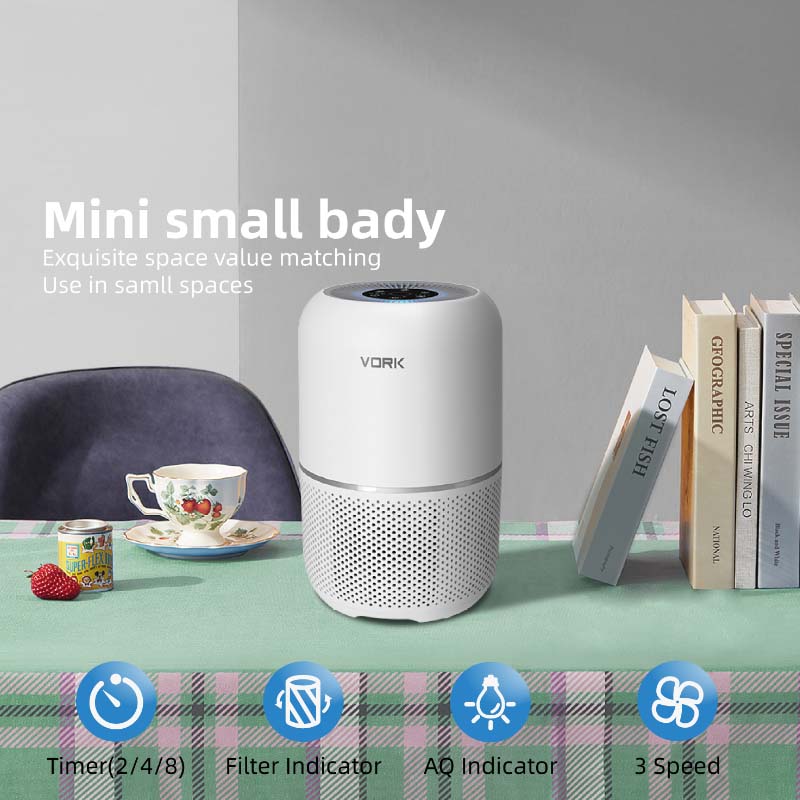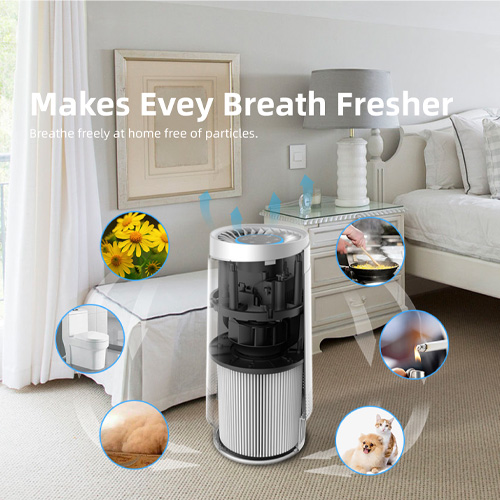Schützen Sie sich vor Luftverschmutzung. Warum verwenden Sie nicht HEPA in Ihrem Luftreiniger?
Nov 01, 2022
Ein Luftreiniger der Spitzenklasse sollte immer mit einem HEPA-Filter ausgestattet sein. HEPA steht für High Efficiency Particulate Arrestance oder High Efficiency Particulate Air. Das Schlüsselelement eines HEPA-Filters besteht normalerweise aus einem ultrafeinen Glasfasermaterial, das einen Filtrationstest bestehen muss, um als HEPA zertifiziert zu werden. Insbesondere verlangt der Standard des US-Energieministeriums (DOE) für HEPA-Filter eine Filterung von Partikeln mit einem Durchmesser von 0,3 Mikrometern zu mindestens 99,97 Prozent. Im Gegensatz zu den USA verfügt die Europäische Union über eine eigene Norm, EN 1822:2009, für die HEPA-Zertifizierung. Mit dieser Norm werden HEPA-Filter in mehrere Klassen mit Filterwirkungsgraden von 85 % bis nahezu 100 % für Partikel mit einer Größe von 0,3 μm eingeteilt. Bei den meisten Filtern ist es schwierig, Partikel mit einer Größe von 0,3 μm zu blockieren, aber ein HEPA-Filter wäre in der Lage, über 99,97 % einiger Arten von Partikeln zu entfernen, die kleiner als 0,3 μm in der Luft sind. HEPA-Filter können große Mengen an Partikeln blockieren, die Asthma und Allergien verursachen oder verschlimmern, darunter Staub, Pollen, Ruß, Tierhaare, Hausstaubmilben und Schimmelpilzsporen. Auch HEPA-Filter können einen wesentlichen Beitrag zur Eindämmung der Ausbreitung von Covid-19 leisten. Um mehr über HEPA-Filter mit erstklassigen Luftreinigern zu erfahren, Bitte klicken Sie hier.

